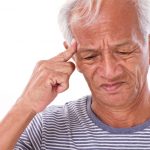 Alzheimer’s Disease International reports that in 2013 there was an estimated 44.4 million individuals with dementia globally. That number is projected to rise to 75.6 million by 2030 as the population continues to age. Although there is no cure for dementia, diagnosis can still aid in treatment methods and work to improve a person’s way of life. A new home test to diagnose dementia quickly is called the Quick Dementia Rating System (QDRS).
Alzheimer’s Disease International reports that in 2013 there was an estimated 44.4 million individuals with dementia globally. That number is projected to rise to 75.6 million by 2030 as the population continues to age. Although there is no cure for dementia, diagnosis can still aid in treatment methods and work to improve a person’s way of life. A new home test to diagnose dementia quickly is called the Quick Dementia Rating System (QDRS).
What is dementia?
Dementia is an umbrella term which encompasses many other diseases which affect memory, concentration and thinking ability. Symptoms of dementia include memory loss, lack of concentration, communication issues, reduction in reason and judgment and impairment in visual perception.
Advertisement
Dementia is most common in seniors but is not considered a normal part of aging. Current available treatments for dementia work to ease symptoms associated with dementia or regulate brain chemicals.
Testing and diagnosing for dementia
 There are a number of different ways to test and diagnose dementia. But the new technique, QDRS, has shown to be far more accurate and reliable.
There are a number of different ways to test and diagnose dementia. But the new technique, QDRS, has shown to be far more accurate and reliable.
Typical means of testing for dementia include:
- Cognitive and neuropsychological test – cognitive function will be evaluated, tests to measure memory, orientation, reasoning and judgment
- Neurological evaluation – movement, senses, balance, reflexes
- Brain scans – CT or MRI scans may be requested to check for stroke, tumor, or possible bleeding in the brain
- Laboratory tests – blood work, vitamin deficiencies and thyroid function
- Psychiatric evaluation – a mental health specialist will be able to determine if it is a diagnosis of dementia or a mental illness
These methods of testing for dementia can be invasive, timely and all involve a medical authority. But with QDRS a simple questionnaire is used which can be administered by a layperson and merely takes three to five minutes.
QDRS for dementia diagnosis
 The purpose of QDRS is to establish severity of dementia – very mild, mild, moderate or severe. The questionnaire focuses on questions to cover the following:
The purpose of QDRS is to establish severity of dementia – very mild, mild, moderate or severe. The questionnaire focuses on questions to cover the following:
- Memory and recall
- Orientation
- Decision-making and problem-solving
- Activities outside of the home
- Function at home and hobbies
- Personal hygiene
- Behavior and personality changes
- Language and communication abilities
- Mood
- Attention and concentration
Typical dementia testing is a long process, but with QDRS the time for diagnosis is significantly reduced.
Each question has five possible answers and the score is determined from the answers in each section. QDRS will be able to provide doctors with a clearer and quicker view of a person’s mental ability in order to choose the right course of action in regards to treatment.
Although QDRS is copyrighted, it is free to clinicians making it easier to obtain a questionnaire from your doctor.
Related Reading:
Medication for diabetes aids in dementia prevention
As we age many functions of the body begin to decline. One function, in particular, is our memory. But losing our memory doesn’t have to be a part of aging and yet dementia diagnoses are on the rise. Continue reading…
Advertisement
Study finds laughter actually is the best medicine for dementia
Dementia is a mental health condition that is quickly becoming a major health concern around the world. Approximately 35.6 million people suffer from the disease worldwide and 7.7 million new cases are diagnosed each year, according to the World Health Organization (WHO). Continue reading…
Sources:
http://www.mayoclinic.org/diseases-conditions/dementia/basics/tests-diagnosis/con-20034399
http://www.alzheimersreadingroom.com/2015/08/3-minutes-test-for-alzheimers-dementia.html
http://www.alz.co.uk/research/statistics
http://www.alz.org/what-is-dementia.asp
